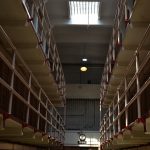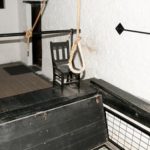New Laws Against Hate Speech

“There is a fine line between hate speech and free speech. Free speech encourages debate whereas hate speech incites violence” – Newton Lee.
Earlier this week, the Facebook page of Australian retailer David Jones exploded in a barrage of abuse after former AFL star Adam Goodes was announced as the store’s new brand ambassador.
But the announcement of a radical overhaul of racial vilification laws could make people think twice before outwardly expressing certain racist views.
Failure to Prosecute Inspires Reform
According to Attorney-General Gabrielle Upton, the time is ripe for a review of section 20D of the Anti-Discrimination Act because there has been a systemic failure to prosecute those who engage in ‘serious racial vilification’.
Currently, section 20D of the Anti-Discrimination Act contains the criminal offence of ‘serious racial vilification’. The section says that:
‘A person shall not, by a public act, incite hatred towards, serious contempt for, or severe ridicule of, a person or group of persons on the ground of the race of the person or members of the group by means which include:
(a) threatening physical harm towards, or towards any property of, the person or group of persons, or
(b) inciting others to threaten physical harm towards, or towards any property of, the person or group of persons.’
The maximum penalty is 6 months imprisonment and/or a fine of up to $5,500 for individuals, or $11,000 applies for corporations.
Section 20D(2) requires the Attorney-General’s consent to be obtained before a prosecution can be commenced.
Ms Upton says that members of the community have approached her advising that current laws are ‘just not working.’
A parliamentary inquiry into anti-discrimination laws in 2013 found that the current section is ineffective because prosecutions are just not taking place.
The final report noted that:
‘… since 1992 the Anti-Discrimination Board of NSW has referred 11 potential serious racial vilification matters to the Director of Public Prosecutions for possible breaches of s 20D…yet none of these referrals have led to a single prosecution being instituted.’
During the inquiry, submissions were received from the Anti-Discrimination Board that ‘the current legislative scheme is totally ineffective in relation to serious acts of racial hatred, incitement to such acts and incitement to racial hatred,’ and raised concerns that the lack of prosecutions could ‘result in a lack of public confidence in the provision and in turn send the message that racism is tolerated in New South Wales.’
That view was shared by other bodies including the NSW Council for Civil Liberties, which drew attention to the fact that none of those involved in the 2005 Cronulla Riots were ever prosecuted for the offence, despite ample evidence that they had engaged in extreme racial vilification.
The inquiry published 15 recommendations for the government to consider, including amending section 20D to include a statement that recklessness is sufficient to establish intention to incite, a review of penalties, a repeal of the requirement that the Attorney-General’s consent is required, and an amendment allowing the President of the Anti-Discrimination Board of NSW to refer complaints to the NSW Police Force, rather than the Attorney-General.
Others, however, claim that the lack of prosecutions indicates that section 20D is working, and has deterred acts of racial vilification.
But it appears that the government agrees with the criticisms, with Ms Upton announcing that she is prepared to implement almost all of the inquiry’s recommendations.
Dual Purpose
Those who support reform say that the proposed changes will serve a dual purpose in today’s political climate.
On one hand, they will help to protect against the racial vilification experienced by members of the Muslim community in recent months, particularly after the Parramatta shooting, which led to a protest outside a local mosque; with members of the ‘Party for Freedom’ gathering to chant racist slogans and reject multiculturalism.
Muslim and Australian political leaders spoke out after the shooting, asking members of the community to be accepting of other cultures and faiths; warning that it is unacceptable to further ostracise Muslim Australians.
On the other hand, reforms would help to deter extremist leaders from preaching hate. One such person is Ismail al-Wahwah, the head of political group Hizb-ut Tahrir, who was filmed delivering speeches in which he described Jewish people as ‘the hidden evil’ and calling for a ‘jihad against the Jews.’
That matter was referred to the Director of Public Prosecutions, but no prosecution resulted.
Ms Upton has foreshadowed the introduction of legislation in the 2016 Budget Session, hoping that serious instances of racial vilification will be prosecuted in the future.
Receive all of our articles weekly
Author






